Troubleshooting Tips for Common Water Heater Problems in Murfreesboro
When it comes to keeping your household running smoothly, the water heater plays a crucial role. It's the unsung hero that ensures we have warm water for our daily routines. However, a malfunctioning water heater can be a major inconvenience, leaving us with cold showers and disrupted routines. That's why it's important to know how to troubleshoot common water heater issues. By addressing these problems promptly, you can keep your water heater running smoothly and avoid any unexpected disruptions.
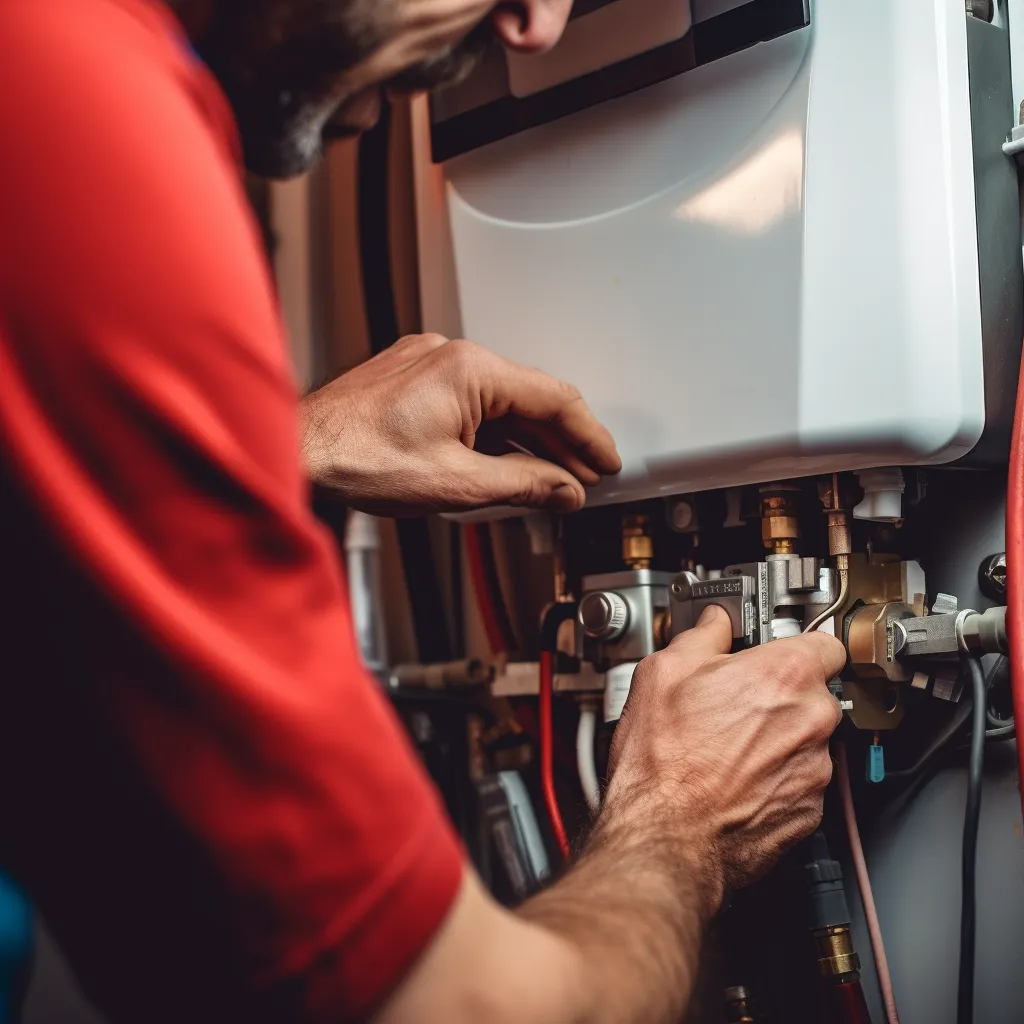
Leaking tank
When you encounter a leak in your water heater, it is often a result of a malfunctioning pressure relief valve or a corroded tank. To rectify this issue, follow these simple steps to resolve the problem:
Inspect the pressure relief valve. This valve is responsible for regulating the pressure within the tank and should release excess pressure to prevent a catastrophic failure. If the valve is faulty, it can cause leaks. Carefully examine the valve for any signs of damage or corrosion. If you notice any issues, it is best to replace the valve promptly.
Inspect the tank itself for signs of corrosion or rust. Over time, water heaters can develop corrosion, especially if they are older or have not been properly maintained. Corrosion weakens the tank's structural integrity and can result in leaks. If you observe any corrosion or rust, it is likely time for a water heater replacement to prevent further damage.
In either case, it is recommended to consult a professional plumber experienced in water heater replacement. They can accurately assess the situation, provide expert guidance, and perform the necessary repairs or replacements.

The water is discolored
Discolored water can be a sign of a failing water heater or other issues within the system. Instead of waiting for the problem to worsen, it's important to take action and address the issue promptly.
One of the components that should be checked regularly is the pressure relief valve. This valve plays a vital role in releasing pressure and preventing potential hazards.
A mixture of white vinegar and water can be used to effectively flush your water heater. It helps to eliminate any accumulated sediment and mineral buildup, which can impede the efficiency and functionality of the appliance. Conducting this simple maintenance task can greatly enhance the lifespan and effectiveness of your water heater.
Inspect the anode rod for any signs of deterioration or corrosion. If you notice any corrosion, it is highly recommended to replace the anode rod to prevent any additional damage.
It is advisable to reach out to a professional who specializes in performing comprehensive descaling treatments.
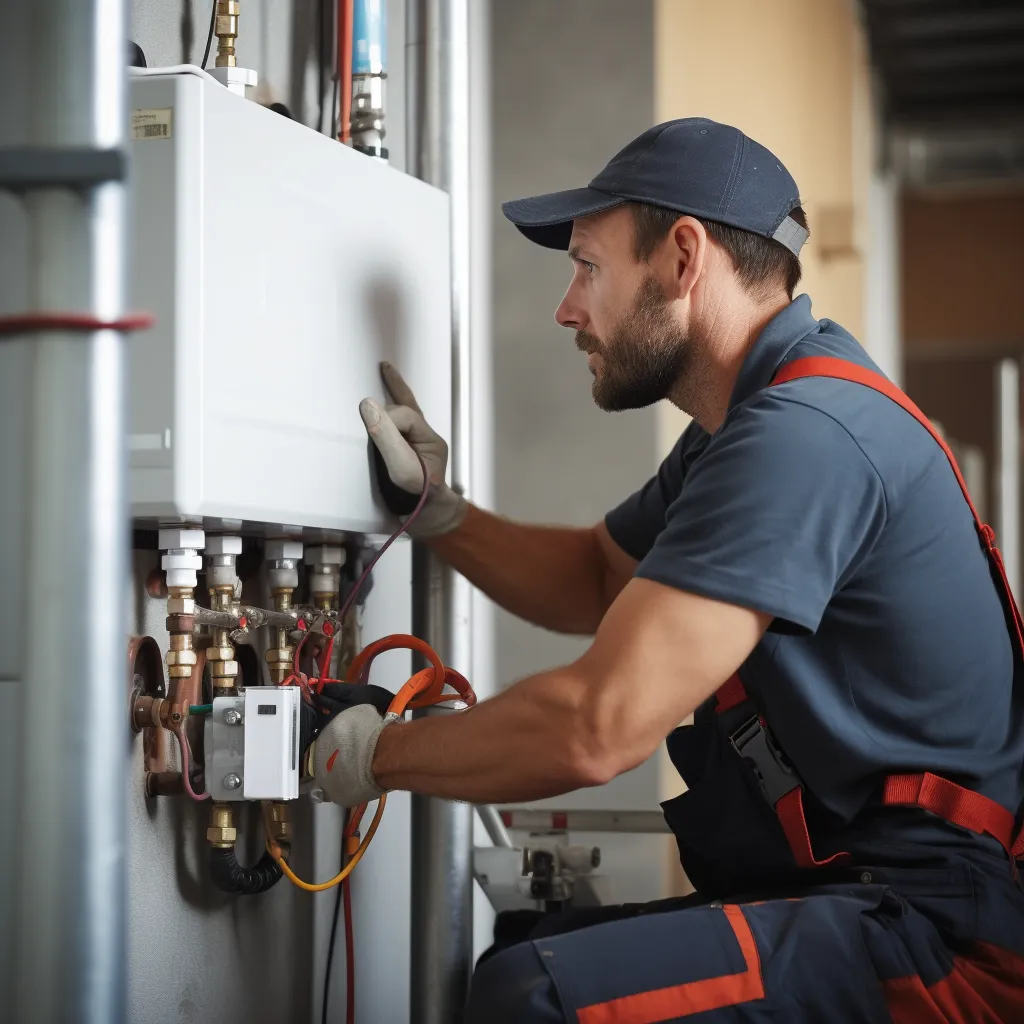
The water smells bad
If you are experiencing foul-smelling water due to the accumulation of bacteria, it is crucial to take necessary action promptly. Follow these essential steps to address the problem of bacteria buildup in your water heater:
Turn Off the Power: Before proceeding with any maintenance or repairs, ensure that you turn off the power supply to your water heater. This will help prevent any accidents or injuries.
Drain the Tank: Start by draining the water heater tank to remove any stagnant water and sediment buildup. Attach a garden hose to the drain valve located at the bottom of the tank and allow the water to flow into a suitable drain or container. Let the tank drain completely.
Clean the Tank: Once the tank is drained, mix a solution of water and hydrogen peroxide or bleach. Be sure to follow the instructions provided on the product for the appropriate dilution ratio. Carefully pour the solution into the tank, ensuring it reaches all areas.
Disinfect the Tank: Allow the cleaning solution to sit in the tank for at least an hour to effectively kill the bacteria. This will help disinfect the tank and eliminate any lingering odor caused by the bacteria buildup.
Rinse the Tank: After the disinfection period, drain the cleaning solution from the tank by once again attaching a garden hose to the drain valve. Flush the tank with fresh water thoroughly to ensure that all traces of the cleaning solution are removed.
Refill the Tank and Restore Power: Once the tank has been adequately rinsed, close the drain valve and fill the tank with fresh water. Afterward, turn on the power supply to your water heater, allowing it to heat the clean water.

Noisy water heater
Water heaters can sometimes make strange noises due to sediment buildup or loose parts. If you're experiencing this issue, there are a few ways you can tackle it.
Regularly flush the unit to prevent sediment buildup. Over time, minerals and other debris can accumulate in the tank, which can hinder its functionality.
Reach out to a licensed plumber to conduct a thorough inspection of its internal components. By doing so, you can rest assured that every part is appropriately secured and tightened, minimizing the risk of any potential issues arising in the future.
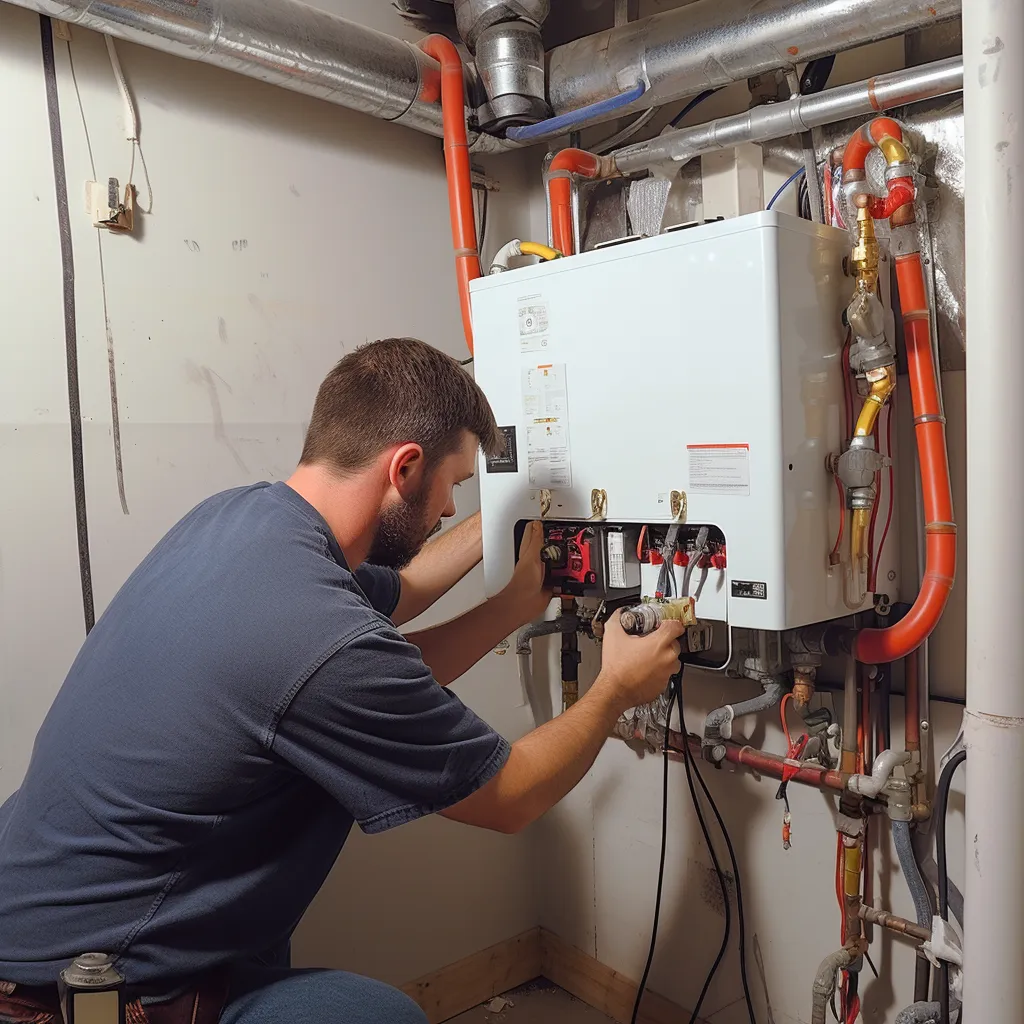
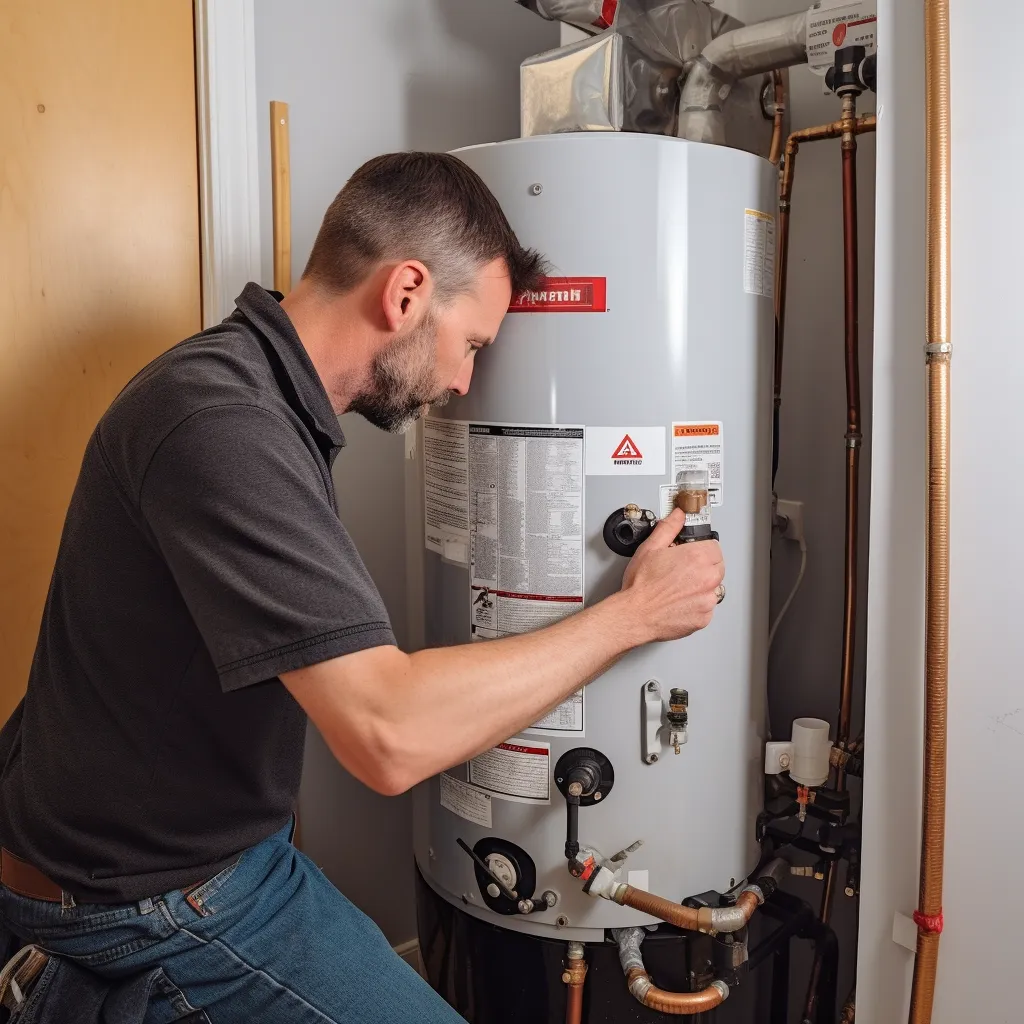
Tank takes a long time to reheat
If you're experiencing long wait times for your tank water heater to reheat, there may be a few potential causes behind this issue. Some common factors include a faulty thermostat, an insufficiently sized tank, or mineral deposits accumulation. Fortunately, there are steps you can take to resolve this problem.
Make sure that the thermostat is set to your desired temperature.
If your water is not heating up as you anticipated, there's a possibility that the reason behind it is a faulty thermostat.
Enlist the expertise of a professional for inspecting any mineral buildup. Mineral accumulation within the tank over time can impede the heating process.
If you find yourself constantly running out of hot water, it could be a sign that your current water tank is too small to meet the demands of your household.
Low hot water pressure
When dealing with low hot water pressure, it's important to consider factors such as the size of your hot water tank and any potential leaks in your plumbing system. By addressing these issues, you can resolve the problem and enjoy improved hot water pressure. Here are some steps you can take:
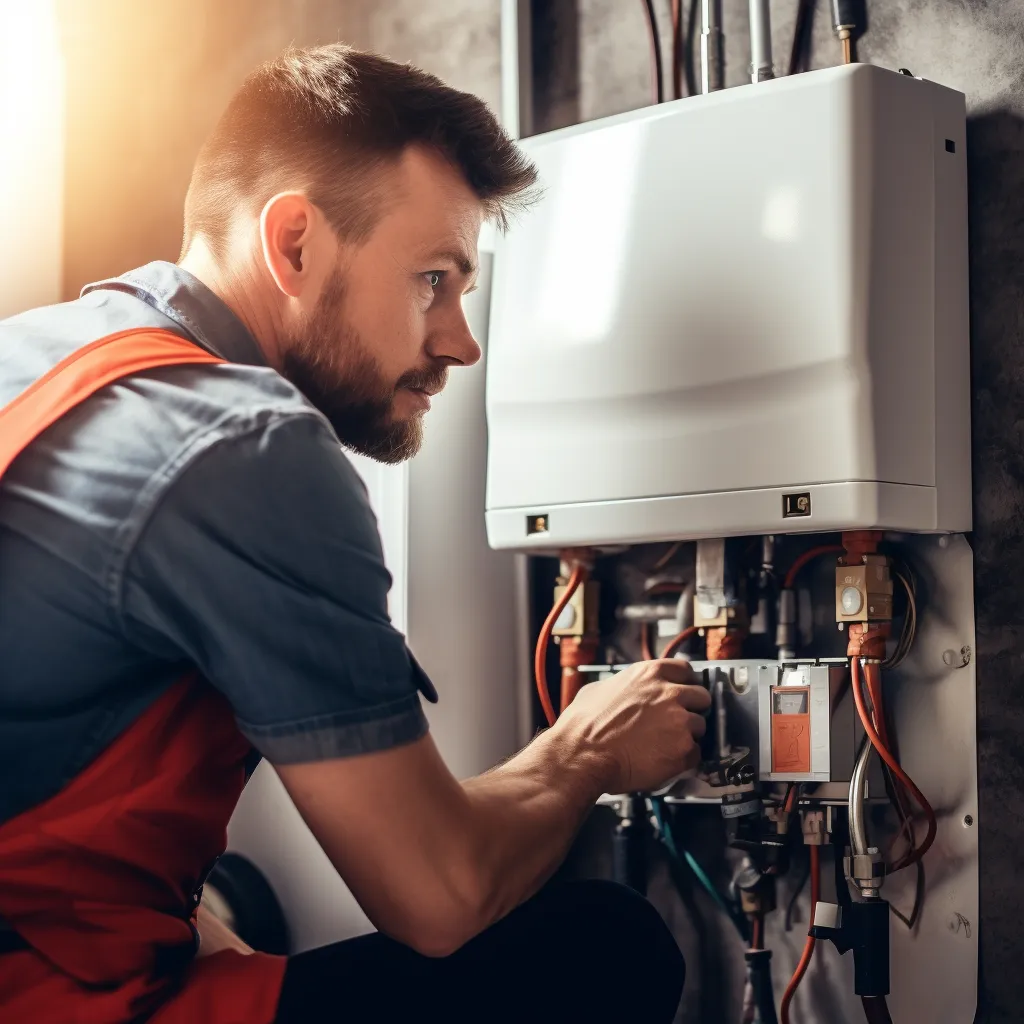
Evaluate the size of your hot water tank: If you're experiencing consistently low hot water pressure, it could be because your tank is too small to meet your household's demands. Consider upgrading to a larger tank or switching to a tankless water heater, which provides hot water on demand without the limitations of a tank.
Check for leaks: Leaks in your plumbing system can significantly reduce hot water pressure. Inspect all visible pipes, faucets, and fixtures for any signs of leakage. If you discover any leaks, repair or replace the affected components as necessary.
Clean the aerators: Over time, mineral deposits can accumulate in faucet aerators, causing decreased hot water flow. Remove the aerators from your faucets and clean them thoroughly to remove any debris or sediment. Reattach them and check if the hot water pressure has improved.
Insulate your pipes: Uninsulated pipes can experience heat loss, resulting in reduced hot water pressure. Insulating your pipes will help maintain higher hot water temperatures and boost water pressure.
Consider a pressure booster pump: If your low hot water pressure persists despite addressing other potential causes, installing a pressure booster pump can help increase water pressure throughout your home. A professional plumber can assess your needs and recommend the best solution for your situation.
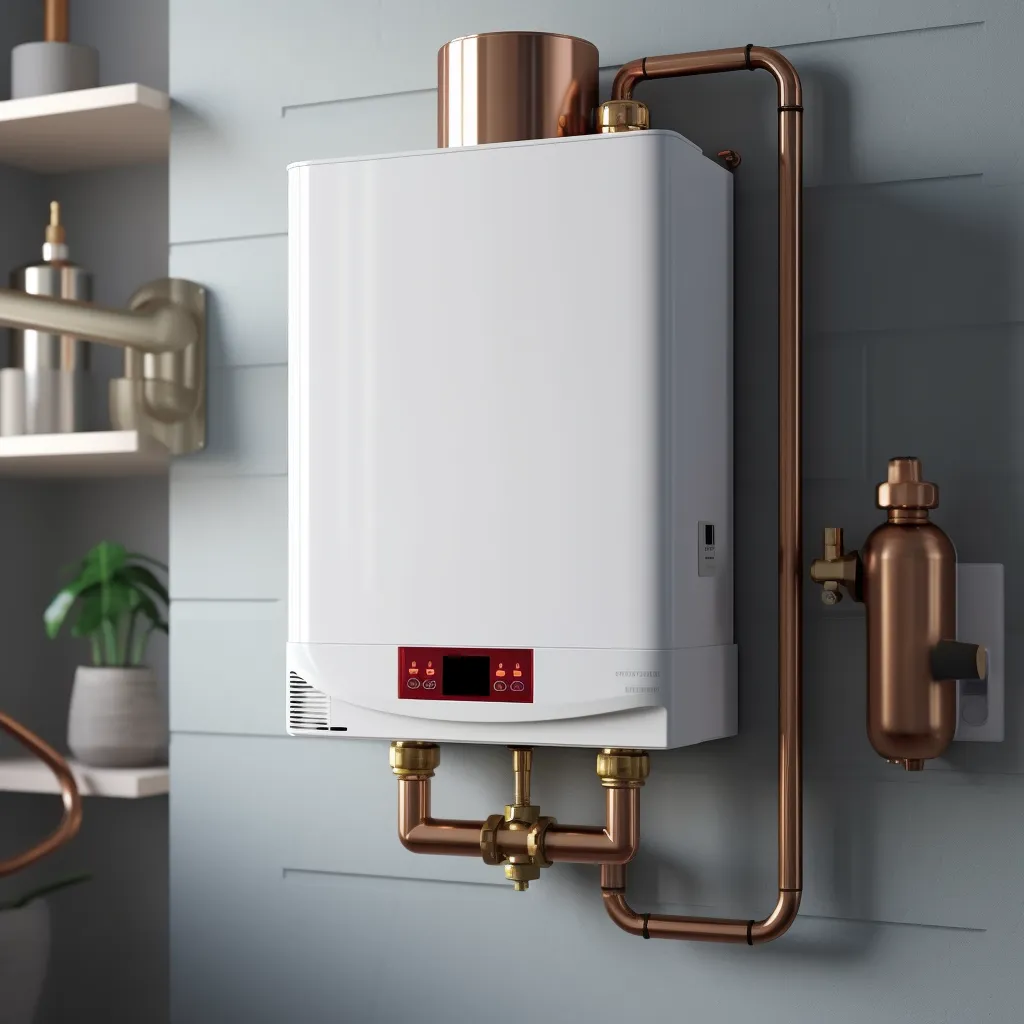
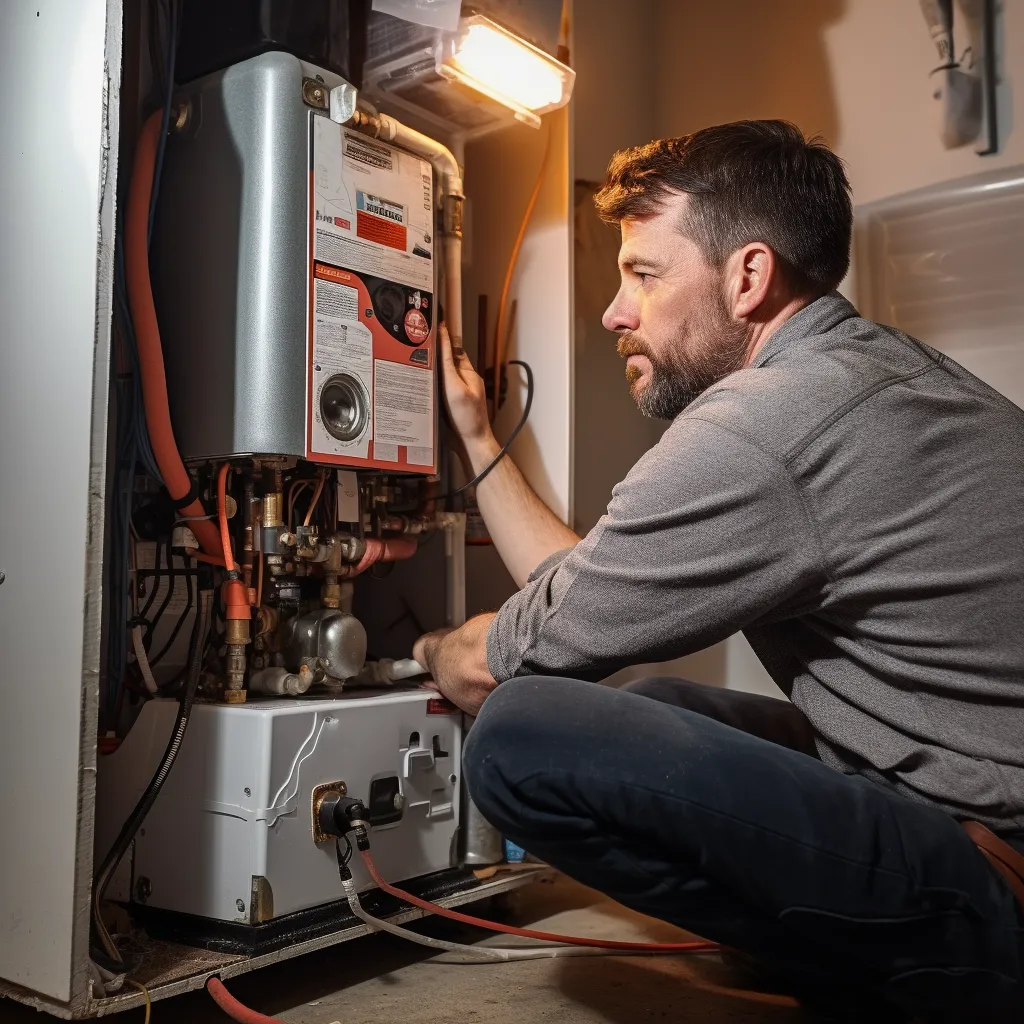
Low supply of hot water
If you are experiencing a low supply of hot water and quick cooling, it's important to determine the cause. There could be several factors contributing to this problem, including a malfunctioning thermostat, an undersized tank, or clogged pipes. To address this issue, here are some troubleshooting tips to consider:
Check the thermostat: Start by checking the temperature setting on your water heater's thermostat. Make sure it is set to an appropriate level for your needs. If the thermostat is faulty, it may need to be replaced.
Evaluate the tank size: Consider the size of your water heater tank. If it is undersized for your household's hot water demands, upgrading to a larger tank may be necessary for optimal performance.
Inspect pipes for blockages: Over time, sediment and mineral build-up can accumulate inside the water heater's pipes, causing reduced water flow and inadequate heating. Check for any signs of blockages and consider flushing out the system to remove any deposits.
Test the pressure relief valve: The pressure relief valve helps regulate the pressure inside the water heater tank. If it's not functioning correctly, it can affect the performance of the unit. Check if the valve is working properly and replace it if needed.
How to prevent future water heater problems
Preventing future water heater problems is essential to ensure the smooth functioning of your system. Regular maintenance and following a few simple tips can help extend the lifespan of your water heater and prevent the need for a costly replacement. Here are some effective ways to avoid water heater problems:
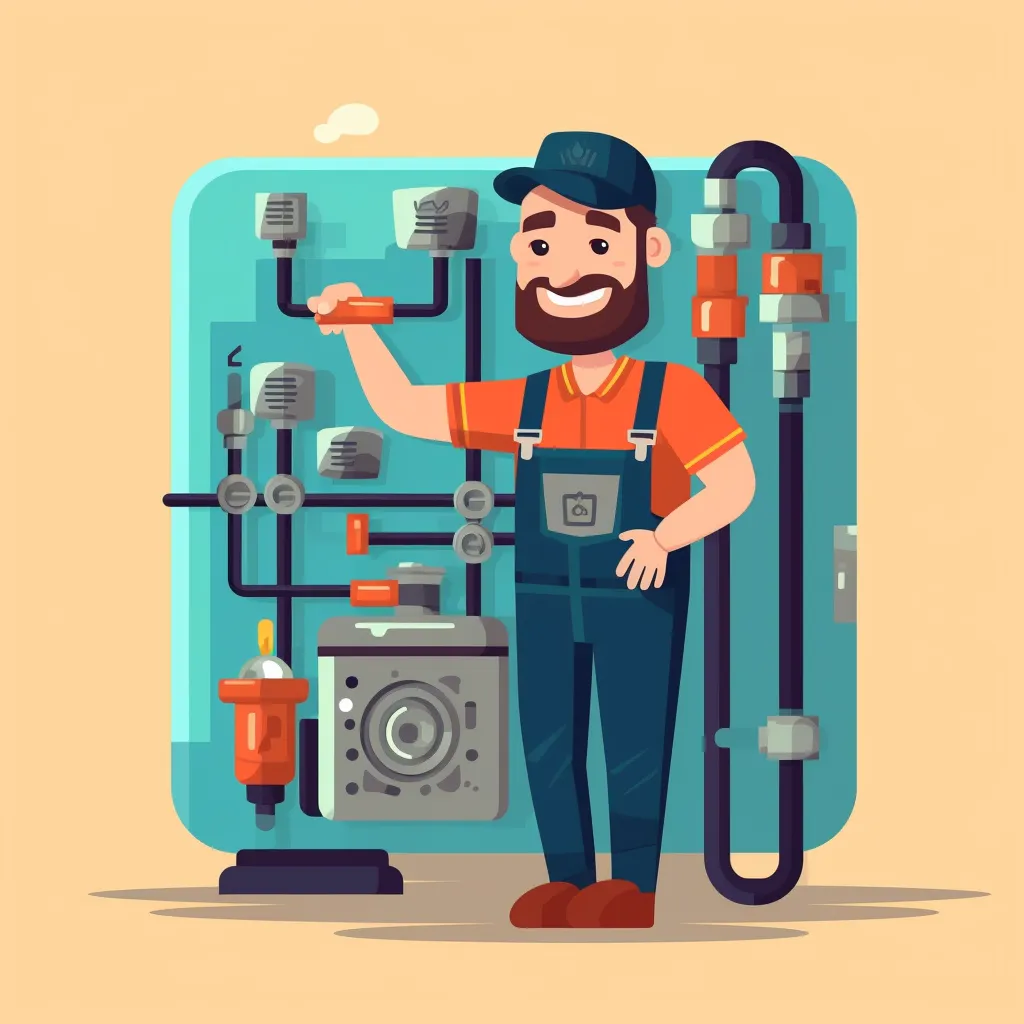
Annual professional inspection: Schedule an annual inspection with a licensed plumber to assess your water heater's condition. They will check for leaks, sediment buildup, and any other potential issues.
Regularly flush the tank: Over time, sediment and mineral buildup can accumulate in the tank, reducing its efficiency. Flushing the tank periodically helps remove this buildup and prevents clogging. Follow the manufacturer's instructions or consult a professional for guidance on how to flush your specific model.
Check the pressure relief valve: The pressure relief valve helps regulate the pressure inside your water heater. Make sure to test it periodically by following the manufacturer's instructions. If it doesn't operate correctly, contact a plumber for assistance.
Insulate exposed pipes: Insulate any exposed hot water pipes to prevent heat loss and minimize the risk of frozen pipes during colder months. This helps keep the water at the desired temperature while reducing energy consumption.
Adjust the temperature: Set your water heater's temperature to a safe and efficient level, usually around 120 degrees Fahrenheit (49 degrees Celsius). This not only prevents scalding accidents but also reduces wear and tear on the system.
Install a water softener: If your area has hard water, consider installing a water softener. Hard water contains minerals that can cause sediment buildup and reduce the efficiency of your heater. A water softener helps remove these minerals and prevents future problems.
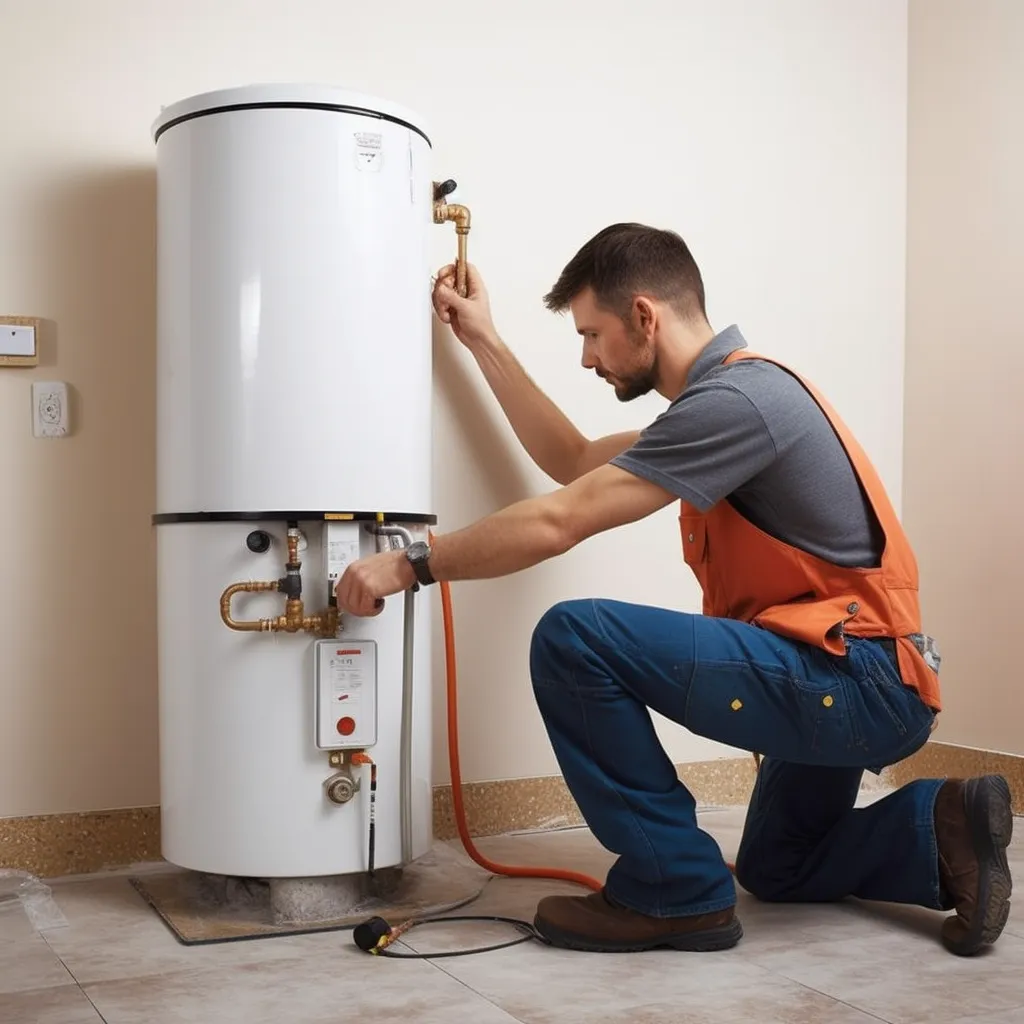
By following these preventative measures, you can significantly reduce the chances of encountering water heater problems and the need for a replacement. However, if your water heater reaches the end of its lifespan or encounters major issues, it is advisable to consult a professional for a water heater replacement, TN.
Know when to call in a licensed plumber
Knowing when to call in a licensed plumber for water heater repair or replacement is essential to ensure a smooth and efficient process. While some homeowners may feel confident in attempting DIY repairs or installations, it's important to remember the potential risks and complications that can arise from mishandling such tasks. Water heater replacement is not a task for the inexperienced or untrained individual. Hiring a licensed plumber is the best course of action to ensure that the job is done correctly and safely. Professionals have the knowledge, skills, and experience needed to handle the complexities involved in this process. Attempting to perform a water heater replacement without the necessary expertise can result in various problems. Improper installation can lead to leaks, inconsistent water temperature, or even more severe issues such as water damage to your property. Additionally, DIY installations may void any warranties or guarantees that come with your water heater. By hiring a water heater expert, you can have peace of mind knowing that the replacement will be carried out efficiently and effectively. Plumbers have the necessary tools and equipment to complete the job correctly, reducing the likelihood of future problems. When it comes to water heater replacement, time is of the essence. A malfunctioning or outdated water heater can cause inconvenience and discomfort in your daily life. Whether you need a traditional tank water heater or a tankless system, will be able to assess your needs and recommend the best solution for your home.
What to look for in a licensed plumber
When searching for a licensed plumber, there are several important factors to consider. Hiring a professional who specializes in water heater installation and has the necessary skills and expertise is the key to ensuring a successful and efficient replacement.
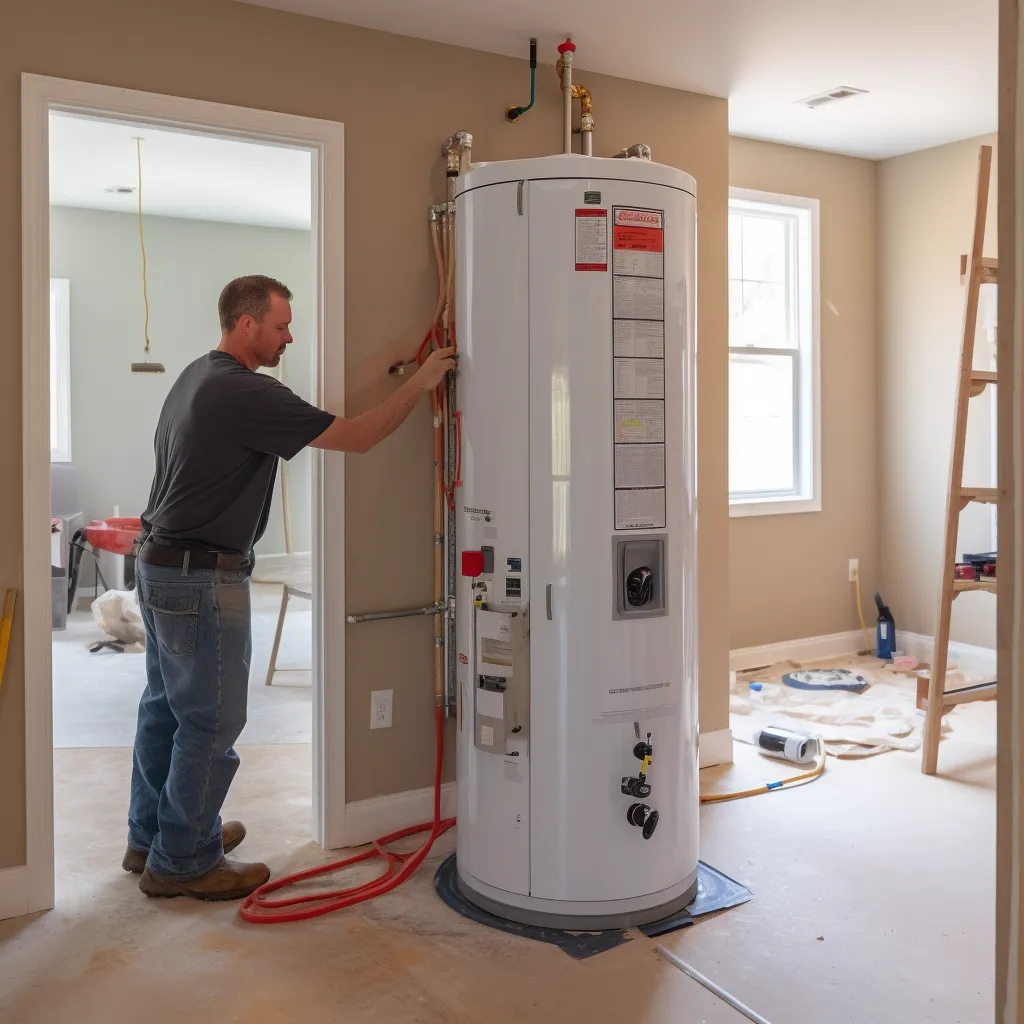
Find a licensed plumber. A licensed plumber has undergone the necessary training and has met the required standards set by the state. This ensures that they have the knowledge and skills to perform the job safely and accurately. Experience is another vital aspect to consider.
Look for a plumber who has extensive experience in water heater replacement. An experienced plumber will have encountered various water heater models and types, making them better equipped to handle any issues that may arise during the installation process.
An experienced plumber will be familiar with local building codes and regulations, ensuring that your water heater replacement is compliant. When it comes to water heater replacement, quality workmanship is essential.
Look for a plumber who takes pride in their work and pays attention to detail. Reading customer reviews and testimonials can give you insights into the quality of work provided by the plumber. Positive reviews indicate that the plumber is reliable and delivers satisfactory results.
It is also important to consider the plumber's availability. A water heater replacement may be an urgent matter, and you wouldn't want to wait weeks for the plumber's availability. Look for a plumber who can provide prompt service and accommodate your schedule.
Consider the pricing. While cost shouldn't be the sole factor in your decision-making process, it is important to ensure that the plumber offers competitive pricing. It is recommended to obtain multiple quotes and compare them to ensure you are getting a fair price for the water heater replacement service.
Reach out to an experienced professional
If you're experiencing issues with your water heater, it's important to determine the cause before attempting any repairs. It is highly recommended to seek the expertise of a licensed plumber to inspect and diagnose any problems with your unit. By doing so, you can ensure a reliable and lasting solution to your water heater issues. By following these suggestions, you can effectively address difficulties with your water heater and keep your household operating smoothly. If you require further assistance or advice, don't hesitate to reach out to an experienced plumber who can assess your water heater and recommend effective solutions to restore its functionality. For reliable water heater replacement services in Murfreesboro, contact our team of skilled plumbers today.
Contact Us
GET IN FULL TOUCH
PHONE: 615-671-4918
EMAIL:
steven@waterheatermurfreesboro.com
Rutherford Plumbing Heating & Cooling
Murfreesboro, TN 37128


